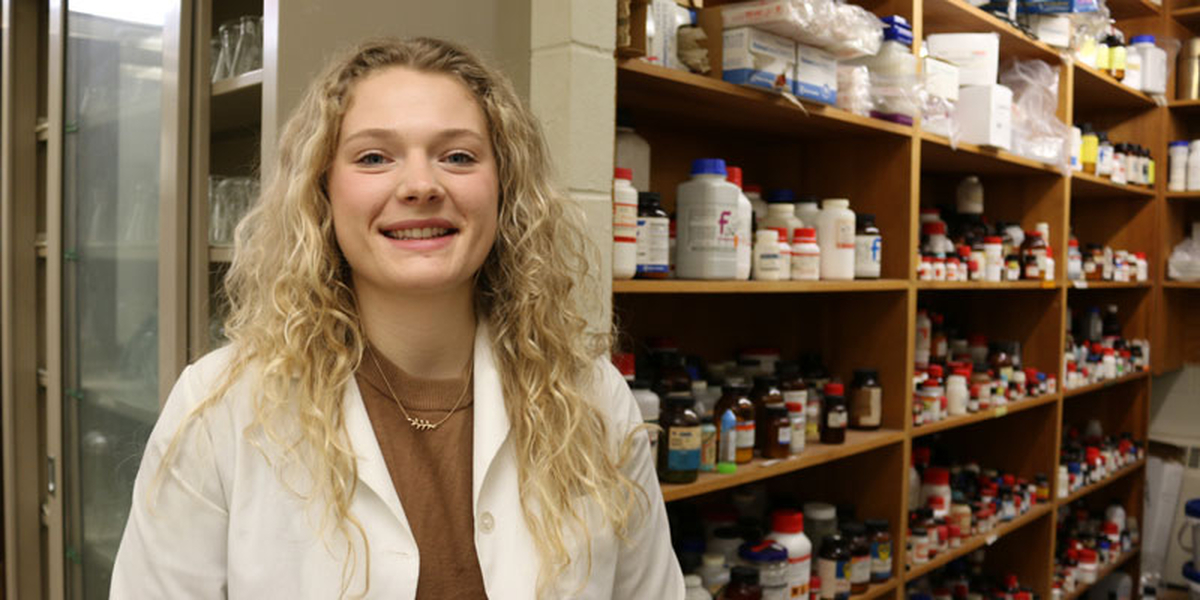
Polyfluorinated chemicals—often known as PFAS—are in a wide range of products including the ubiquitous nonstick pans in kitchen cupboards. The widespread chemicals degrade slowly, earning the nickname “forever chemicals.” While their staying power often boosts their effectiveness, it also creates problems downstream turning them into a major liability. These compounds aren’t readily found in nature, so there are few microbes equipped to break them down.
Finding the few that can break down the forever chemical is a bit like finding a needle in a haystack. Fortunately, researchers — including Microbial Engineering graduate student Maddy Bygd and Biochemistry, Molecular Biology and Biophysics Professor Larry Wackett — recently identified a candidate to break down one of these polyfluorinated compounds in a paper published in mBIO.
Researchers wanted to find a bacteria that could convert harmful chemicals to harmless fluoride and carbon. Identifying a bacteria naturally found in soils makes it more likely to succeed down the line as a remediation tactic in soils because it is primed for the unique conditions. The bacteria is readily found in soils and has been previously shown to break down compounds that resemble PFCs. Using a new method she devised, Bygd identified a bacteria that fit the bill, Pseudomonas putida F1.
Identifying a candidate was only the first step. Bygd went to work to find out how Pseudomonas putida does what it does, setting the stage for future applied research. “We started working through the mechanism and it made a lot of sense, why it was happening, how it was happening,” says Bygd. “So we started to be able to kind of unravel that story.”
Inspired by her work with Wackett and others to pursue this line of inquiry while still an undergraduate. Bygd spent a summer working in the Wackett lab before entering the Microbial Engineering graduate program.
“I realized the intricacies of microbiology and biochemistry and I really, really started to enjoy learning about the environment and how essential microbes are to global cycles, health and agriculture.”
Bygd, who is set to graduate this spring with her eyes set on industry, continues to add new knowledge in this vital area in the meantime. “Maddy has followed up her excellent work for the mBio paper by devising a high-throughput screening method to detect new PFAS-degrading bacteria and enzymes,” says Wackett. “Overall, she is making a big impact in the field of PFAS research.” —Stephanie Xenos